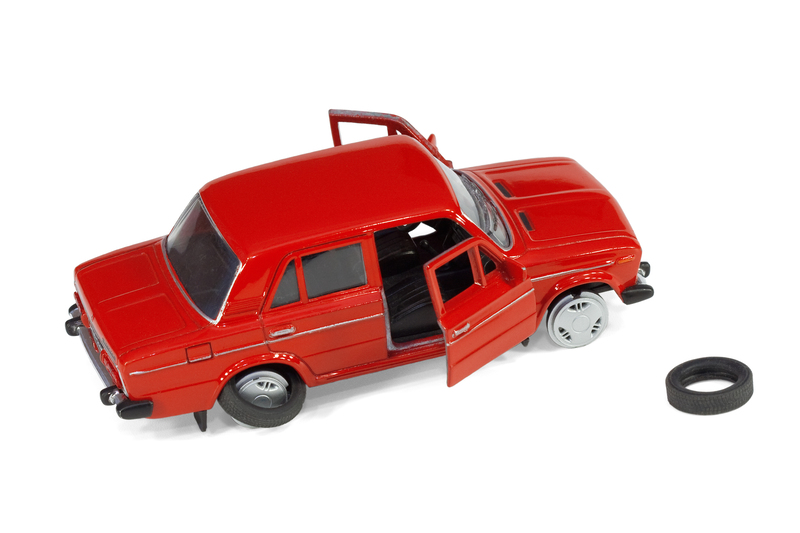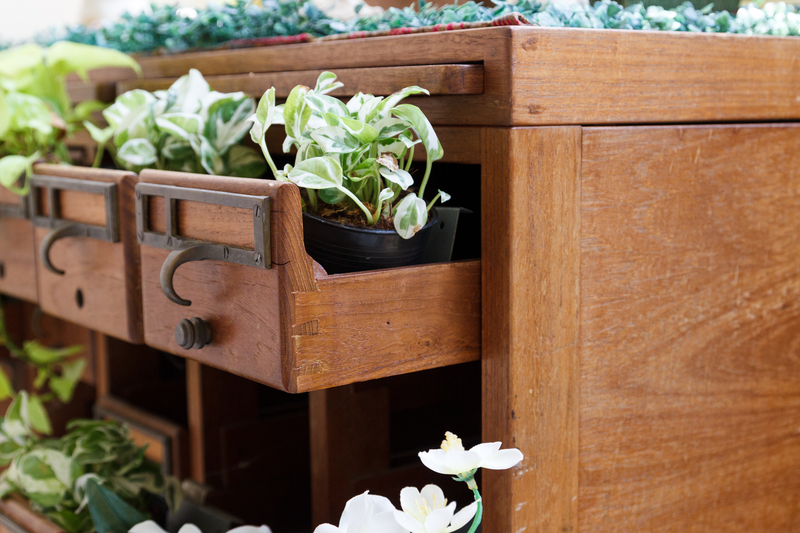Reuse and Recycle: The Life of Old Cookware
Old cookware often finds itself relegated to the darkest corners of our kitchen cupboards. But before you toss out battered pots or that scratched, vintage frying pan, it's worth exploring how these culinary staples can get a new lease on life. Reusing and recycling old cookware not only benefits the environment but can also ignite your creativity and add unique flair to your home. Discover the secrets behind transforming old pans, pots, lids, and bakeware -- and help close the loop in the lifecycle of your kitchen tools!

Why Reuse and Recycle Old Cookware?
The environmental impacts of discarding cookware are significant. Non-biodegradable materials like stainless steel, aluminum, and nonstick coatings can sit in landfills for centuries. Furthermore, producing new cookware consumes resources and energy, thereby increasing your carbon footprint. Recycling cookware helps reduce environmental damage by conserving raw materials and diverting waste from landfills.
- Reduce landfill waste: Every pot and pan you keep out of the trash saves space in landfills.
- Conserve resources: Recycling metal cookware means fewer resources needed to make new products.
- Creativity and savings: Repurposing cookware can save money and add a personal touch to your home.
- Support the circular economy: Extended product life means less demand for new manufacturing.
Common Types of Cookware for Reuse and Recycling
Not all cookware is created equal. Different materials require distinct recycling or upcycling strategies. Here are the most common types:
- Stainless Steel Cookware: Highly recyclable and durable.
- Cast Iron Pans: Can last for generations and are easy to refurbish.
- Aluminum Pots: Lightweight and easily recycled at many metal facilities.
- Copper Cookware: Valuable metal content, often accepted at specialty recyclers.
- Non-stick Pans: More challenging to recycle due to coatings, but still have upcycling potential.
- Ceramic and Glass Bakeware: Not always accepted at curbside recycling but excellent for creative projects.
Ways to Reuse Old Cookware in Your Home
1. Plant Pots and Herb Gardens
Transform old pots, pans, and colanders into unique planters! Their deep bowls and sturdy handles make them ideal for cradling soil and greenery. Create an indoor herb garden using mismatched cookware for a quirky look, or place colanders outdoors for a self-draining flower pot.
2. Artistic Wall Decor
Old cookware often boasts beautiful patinas, retro logos, or colorful enamel. Clean them thoroughly and mount them on your kitchen wall as vintage artwork. Arrange lids in a creative collage or hang a series of pans by their handles for functional decor.
3. Serving Trays and Cooking Accessories
Repurpose baking sheets with bent corners or cracked pie tins as rustic serving trays, cheese boards, or trivets. Cast iron pans with worn-out seasoning can become bread baskets with a piece of fabric or wax paper.
4. Storage Solutions and Organizational Helpers
- Use old muffin tins to organize craft supplies, jewelry, or office items.
- Repurpose a large saucepan as a catch-all container for toys or pet supplies.
- Hang a small pan or pot by the door to collect keys and loose change.
5. Outdoor and Garden Innovations
- Turn a large, deep pan into a bird feeder or water bath.
- Create whimsical wind chimes by hanging spoons, lids, and pans together.
- Use old griddles as grill tops for DIY backyard fire pits.
Recycling Old Cookware Responsibly
When upcycling cookware isn't an option, recycling is the next best way to ensure your cookware contributes to a sustainable future.
Metal Cookware Recycling
Stainless steel, aluminum, copper, and cast iron are all valuable to metal recyclers. Here's what you should do:
- Contact your local recycling center and ask if they accept household metals.
- Remove non-metal parts (plastic, rubber handles, glass lids) before recycling.
- For non-stick pans, check if your recycling center accepts them. The coating might need to be removed.
- Scrap metal yards often accept cookware even when curbside pickup does not.
Non-Metal Cookware Recycling
Unfortunately, nonstick, ceramic, and glass cookware are not widely accepted by recycling programs due to their mixed materials and high melting points. But don't worry -- you can still reuse or upcycle these items creatively. When you must dispose of them, check with local environmental groups or specialty recycling events.
Creative Upcycling Projects for Old Cookware
Mosaic Stepping Stones
Line the bottom of a worn cake pan with broken tiles, glass, or colorful stones. Fill with quick-set concrete, allow to cure, then flip it out for a gorgeous, one-of-a-kind garden stepping stone.
Pendant Lights and Lanterns
Old colanders and pans can become unique lighting fixtures with a little DIY effort! Cut a hole for wiring, add a bulb and chain, and enjoy the industrial chic vibe cast by pinpricks of light.
Chalkboard Trays and Message Boards
Give cookie sheets, baking trays, or lids a new purpose as chalkboards. Paint with chalkboard paint, let dry, and hang in your kitchen for grocery lists, menus, or family messages.
Pet Feeding Stations
Set old pie tins or shallow pans into a wooden frame to create a stable, non-tip feeding station for your furry friends.
Proper Maintenance: Extending the Lifespan of Cookware
If you're not ready to say goodbye to your favorite kitchen companions, here are some tips to increase the longevity of cookware:
- Season cast iron regularly to prevent rust and sticking.
- Hand-wash nonstick pans and avoid metal utensils.
- Remove stains with DIY cleaners such as baking soda and vinegar.
- Avoid extreme temperature changes to prevent warping or cracking.
By taking care of your cookware, you can enjoy its benefits for many years, thus reducing the need for replacement and subsequent waste.
Donation: Giving Old Cookware a Second Life
If your pots and pans are still functional, consider donating them instead of throwing them out. Many organizations accept gently used cookware for families in need, newly housed individuals, or community kitchen projects.
- Check with local charities, shelters, or food banks for donation policies.
- Online community groups such as Freecycle or Buy Nothing often connect donors with recipients.
- Some thrift stores, especially those supporting social causes, welcome kitchen tool donations.
Remember: Always clean cookware thoroughly before donating, and make sure it's safe for use!
The Environmental Impact: Why Recycling Cookware Matters
The journey of old cookware doesn't have to end in a landfill. Over 11 million tons of steel and almost 3 million tons of aluminum are thrown away each year worldwide. Millions of tons could be saved if every household chose to recycle or reuse cookware instead.
- Reduced emissions: Recycling metals uses less energy than mining and producing new materials.
- Less landfill space: Every pan recycled is one less item polluting our planet.
- Support for green industries: Metal recycling creates jobs and builds local economies.
Summary: Extend the Legacy of Your Old Cookware
The next time you find yourself with a chipped saucepan or a battered old baking tray, remember: Reuse and recycle old cookware for an eco-friendly lifestyle. Repurpose, upcycle, lend, donate, or recycle to help conserve resources and keep your home -- and planet -- beautiful.
- Get creative with DIY upcycling projects.
- Recycle metals at certified centers.
- Donate what you can to help others in your community.
- Maintain your cookware to prolong its usefulness.
The life of old cookware doesn't end in the trash. With a little innovation and care, every pot, pan, and kitchen tool can serve a greater purpose -- for you, your community, and the planet.

Frequently Asked Questions on Reusing and Recycling Cookware
Can I put old pots and pans in my curbside recycling bin?
Not always. Most curbside recycling programs don't accept cookware due to mixed materials and coatings. Check with your local recycling center or scrap yard for proper disposal methods.
What should I do with non-stick pans?
If the non-stick coating is damaged, the pan is best suited for creative reuse or upcycling. Some recycling centers accept non-stick cookware if the coating has been removed, but always verify local rules.
Are there any cookware materials that cannot be recycled?
Non-metal cookware, like ceramics and glass, are difficult to recycle and usually not accepted in standard metal recycling processes. Focus on donation or creative reuse in these cases.
How can I safely modify old cookware for new uses?
Always wear safety gear (gloves, goggles) when altering metal pans or cookware, and make sure to clean items thoroughly before repurposing for non-food uses.
Conclusion: The Ongoing Journey of Cookware
By embracing the principles of reuse and recycle with old cookware, you actively participate in environmental stewardship, creativity, and community engagement. Whether transformed into garden art, donated for a new generation of cooks, or recycled into new products, the story of old cookware doesn't end when it leaves your kitchen -- it just evolves.